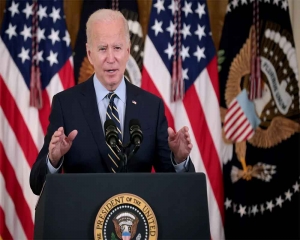Every election generates a controversy that is at variance with the main issues concerning the electorate. Last week, during the campaigning for the Bihar Assembly election next month, there was a flutter of excitement over a charge levelled by Union Minister Giriraj Singh against a Congress candidate in Darbhanga district. The outspoken Minister who has courted controversy many times in the past, described the Congress candidate as a “sympathiser” of Mohammed Ali Jinnah. This, indeed, was the report in the Indian Express (Delhi edition) of October 17.
Since the charge levelled by the Minister was in translation, I can only guess that he meant ‘Jinnah bhakt’ or something more pointed than ‘Jinnah admirer’. Whatever the actual usage, the charge invited a sharp response from Shahid Siddiqui, a Muslim editor who has travelled through both the Bahujan Samaj Party and Samajwadi Party. In a twitter intervention he wrote: “LK Advani is a Jinnah fan, not Indian Muslims. We regard him as a destroyer and divider of Indian Muslims. He was an egoistic leader who knew he had failed in his last days. Pakistan was his greatest blunder.”
Siddiqui’s attack on Jinnah was emphatic and clear. There is a body of Muslims who are insistent that Jinnah’s separatism lowered the collective clout of the Indian Muslims and handed over India to Hindu supremacy. This, they feel, would never have happened had Pakistan and Bangladesh been part of a united India.
Siddiqui’s point is interesting, but it belongs to the realms of counterfactual history and part of the what-if games all of us love to engage in occasionally. The reality was however different. From the pages of history two things are apparent and beyond contradiction.
First, that at least till the Partition plan was announced by Lord Mountbatten in early-1947, Mohammed Ali Jinnah was unquestionably the supreme leader of Indian Muslims. True, he may not have been the only leader and had some challengers. But in terms of popular support he was head and shoulders above all those leaders who were sceptical of the movement to create Pakistan — a homeland for Indian Muslims.
Secondly, it is also clear that the initial support for the Pakistan movement and for Jinnah — between, say 1939 and 1946 — came from Muslims living in those areas that are today a part of India. Aligarh Muslim University was the intellectual hotbed of the Pakistan movement and the Muslim League was dominant in the Muslim reserved seats of Bihar, United Provinces, Central Provinces and the Bombay and Madras Presidencies. In Punjab, Sind, NWFP and Bengal, the Muslim League had powerful challengers. This means that at least until the awkward reality of Partition confronted them, the Muslims of Bihar and UP at least were enthusiastic supporters of Jinnah. They constituted the core of the Pakistan movement, as has been documented by historians.
It is also a fact that a substantial body of Muslims from Bihar, UP and the erstwhile States of Bhopal and Hyderabad migrated to both wings of Pakistan, till 1965 at least. The Muhajirs may today be politically marginalised and alienated from the politics of contemporary Pakistan. But it is undeniable that they were the most enthusiastic supporters of Pakistan at the time of its creation. Moreover, till 1971 at least, they were a privileged community in the country that Jinnah created.
It is also undeniable that the creation of Bangladesh, following the War of Liberation, led to a fundamental reassessment of the past. The views proffered by Siddiqui may well be true today, but that view is essentially a post-1971 phenomenon.
Historical memory tends to play tricks on peoples and communities. There is a wealth of studies in Germany that indicated how a substantial body of Germans went into denial over the country’s Nazi past after the defeat in 1945. Historians have recorded comments such as “we didn’t know” and “no one in my family was a Nazi” that proliferated after 1945 and persisted till the 1970s. Today’s Germany has abjured Hitler and his legacy. But that reassessment is in hindsight.
In India too there is historical amnesia over facets of British rule. The rule of a vast country could not have happened by a tiny minority of Britons. British rule depended on collaboration by locals and particularly local elites. Yet, after 1947, there is a veil of silence over the past.
A British historian once jokingly told me that hadn’t met any Indian whose family was a Raj loyalist. Of course he hadn’t. That is because, like in the case of the Indian Muslims, the past had been reforged to suit the exigencies of the present. Overnight, the Muslim Leaguers of yesterday became supporters of the Congress after 1947.
It is not for me to say whether the Congress candidate in Darbhanga district is a Jinnah admirer or not. Frankly it is of no consequence. But that is no reason to rewrite history.

























